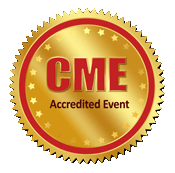Magdalena Ankiersztejn-Bartczak
Foundation for Social Education, Poland
Title: Free of charge home HIV self testing polish good practice
Biography
Biography: Magdalena Ankiersztejn-Bartczak
Abstract
Background: Poland, like the rest of the world, has been severely affected by SARS-CoV-2. In April 2020, because of the COVID-19 epidemic and resulting lockdown, all Polish CBVCTs were closed for several weeks. The Foundation for Social Education made it possibility to order a free HIV self-test for home use. Any person who wished to order the test just had to call the free helpline.
Description: Foundation for Social Education created a project that made it possible to order a free HIV self-test for use at home. Any person who wished to order the test just had to call the free helpline, from which, after talking to an HIV counsellor, they received a password that allowed them to order the test online and receive it by post. An individual questionnaire was created to collect the data, and these were filled in by the counsellor during every call. All data was anonymous. Every client was asked to call again after they had made the test to inform the counsellor of the result.
Lessons: The data collected by the Foundation show that the introduction of an anonymous method of ordering and receiving self-tests increased the participation of women in testing. During the project, which ran for almost a year (14/04/2020–31/12/2021) during the SARS-CoV-2 pandemic, the Foundation distributed 1,700 tests across Poland.
Conclusions: The great interest in home testing shows that such a diagnostic form should be readily available and accessible. The Polish AIDS Society recommends access to diversified forms of HIV testing. According to the recommendations, due to a large percentage of people unaware of their HIV infection, especially in key populations, as well as various barriers to access to HIV screening, it is recommended to introduce at-home HIV test kits . The study was carried out at one site only, on a small test group, and constituted a pilot program. Its results provide a basis for further research and the introduction of a systemic approach to the popularisation of self-testing in Poland.

